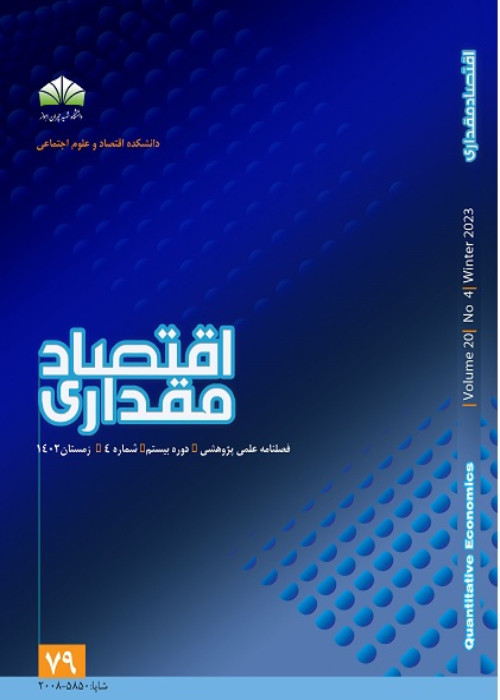The effects of Natural Resources Rents and Good Governance on Happiness in Selected Countries: A Generalized Method of Moments approach
The economics of welfare and happiness is one of the most prominent and important domains in economic literature which, in recent years, has been greatly attended to by many economists. With the advent of the economics of happiness in economic literature, the necessity to investigate how political and economic factors influence happiness has proved to be more and more critical. The present study investigates the effects of natural resource rents and good governance on the happiness index of resource rich countries. The test for interaction effect of good governance and natural resource rents on the happiness level of the selected countries which rely on natural resource revenues, is the pivotal issue in this research which has not been discussed in previous studies.
The interaction effect of natural resource rents and good governance index on happiness in 66 countries having a natural resource rent of over 5 percent of gross domestic production from 2005 to 2018 has been estimated using panel data and the generalized method of moments (GMM). To ensure the appropriateness of using this method for estimating the empirical model, two tests are presented to investigate the validity and accuracy of instrumental variables. The first test is the Sargan test with a null hypothesis representing the uncorrelatedness between the instruments and the error term. The statistical value of the Sargan test in the three applied models in this research is greater than 0.05. As a result, the null hypothesis of no correlation between instruments and error terms cannot be rejected. The second test is the test of first-order autocorrelation AR(1) and second-order autocorrelation AR(2) in error terms in a way that the null hypothesis representing the absence of first-order autocorrelation must be rejected but the absence of second-order serial autocorrelation must not be rejected. The test results of the three models used in this study show that the applied instrumental variables are independent of the error term and enjoy sufficient validity for estimating the models.
According to the results of the estimation of the models, natural resource rents have a negative and statistically significant impact on happinness while good governance have a positive and significant impact on happiness. Additionally, the interaction effect of natural resource rents and good governance on happiness index is negative and significant. The negative impact of the interaction term between natural resource rents and good governance on happiness leads to the weakening of the positive effects of good governance on happiness.
Natural resource rich countries earn a lot by selling their resources. It is expected that having these great levels of revenue, resource rich countries experience economic development and growth and consequently high levels of happiness and welfare, but in practice, they suffer from low degrees of happiness and welfare. This is because the natural resources and the misuse of their revenues lead to a reduction in governance quality. On the other hand, the weakness of institutional indexes creates a negative effect on happiness and growth which makes the windfall of natural resource revenues to become a curse for resource dependent countries. The lack of structural-institutional frameworks in most of the countries studied, the increase of natural resources and the misuse of resource rents by different groups of rent seekers are followed by a great decline in equality, welfare and happiness. Inflation and unemployment have significant negative effects on the happiness index. An increase in inflation and unemployment and their consequent reduction in purchasing power leads to a decrease in happiness levels. The coefficient of the human development index is significant and positive and as a result, the improvement of the quality of the human development index, which leads to a rise in health, education, revenue and life standards, has a positive effect on happiness. Additionally, with regard to the negative effect of natural resource rents on happiness, some measures including natural resource management, implementing instruments like a Sovereign Wealth Fund, using the revenue of natural resources to invest in productive economic sectors and decreasing the share of resource revenue in the current government budget can decline rent-seeking activities and prevent their negative effects on happiness.
- حق عضویت دریافتی صرف حمایت از نشریات عضو و نگهداری، تکمیل و توسعه مگیران میشود.
- پرداخت حق اشتراک و دانلود مقالات اجازه بازنشر آن در سایر رسانههای چاپی و دیجیتال را به کاربر نمیدهد.


